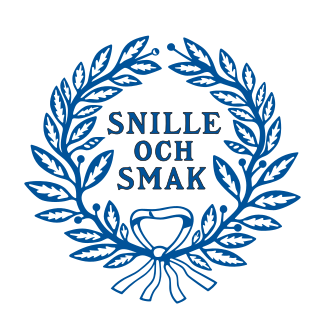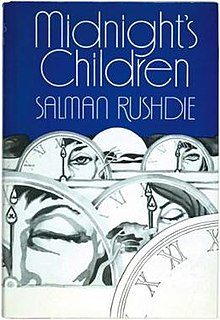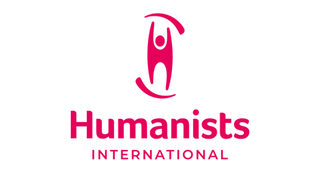Related Research Articles

Sir Harold Walter Kroto, known as Harry Kroto, was an English chemist. He shared the 1996 Nobel Prize in Chemistry with Robert Curl and Richard Smalley for their discovery of fullerenes. He was the recipient of many other honors and awards.

Peter Handke is an Austrian novelist, playwright, translator, poet, film director, and screenwriter. He was awarded the 2019 Nobel Prize in Literature "for an influential work that with linguistic ingenuity has explored the periphery and the specificity of human experience." Handke is considered to be one of the most influential and original German-language writers in the second half of the 20th century.

The Swedish Academy, founded in 1786 by King Gustav III, is one of the Royal Academies of Sweden. Its 18 members, who are elected for life, comprise the highest Swedish language authority. Outside Scandinavia, it is best known as the body that chooses the laureates for the annual Nobel Prize in Literature, awarded in memory of the donor Alfred Nobel.

Sir Ahmed Salman Rushdie is an Indian-born British-American novelist and essayist. His work, combining magical realism with historical fiction, is primarily concerned with the many connections, disruptions, and migrations between Eastern and Western civilizations, with much of his fiction being set on the Indian subcontinent.

Secular humanism, often simply called humanism, is a philosophy, belief system or life stance that embraces human reason, secular ethics, and philosophical naturalism while specifically rejecting religious dogma, supernaturalism, and superstition as the basis of morality and decision making.

Midnight's Children is a 1981 novel by author Salman Rushdie. Published by Jonathan Cape with cover design by Bill Botten. It portrays India's transition from the British colonial rule to the independence and the partition of India. It is considered an example of postcolonial, postmodern, and magical realist literature. The story is told by its chief protagonist, Saleem Sinai, and is set in the context of actual historical events. The style of preserving history with fictional accounts is self-reflexive.

The American Humanist Association (AHA) is a non-profit organization in the United States that advances secular humanism, a philosophy of life that, without theism or other supernatural beliefs, affirms the ability and responsibility of human beings to lead personal lives of ethical fulfillment that aspire to the greater good of humanity.
A Secular Humanist Declaration was an argument for and statement of support for democratic secular humanism. The document was issued in 1980 by the Council for Democratic and Secular Humanism (CODESH), now the Council for Secular Humanism (CSH). Compiled by Paul Kurtz, it is largely a restatement of the content of the American Humanist Association's 1973 Humanist Manifesto II, of which he was co-author with Edwin H. Wilson. Both Wilson and Kurtz had served as editors of The Humanist, from which Kurtz departed in 1979 and thereafter set about establishing his own movement and his own periodical. His Secular Humanist Declaration was the starting point for these enterprises.

David Jonathan Gross is an American theoretical physicist and string theorist. Along with Frank Wilczek and David Politzer, he was awarded the 2004 Nobel Prize in Physics for their discovery of asymptotic freedom. Gross is the Chancellor's Chair Professor of Theoretical Physics at the Kavli Institute for Theoretical Physics (KITP) of the University of California, Santa Barbara (UCSB), and was formerly the KITP director and holder of their Frederick W. Gluck Chair in Theoretical Physics. He is also a faculty member in the UCSB Physics Department and is currently affiliated with the Institute for Quantum Studies at Chapman University in California. He is a foreign member of the Chinese Academy of Sciences.

Jerome Isaac Friedman is an American physicist. He is Institute Professor and Professor of Physics, Emeritus, at the Massachusetts Institute of Technology. He won the 1990 Nobel Prize in Physics along with Henry Kendall and Richard Taylor, "for their pioneering investigations concerning deep inelastic scattering of electrons on protons and bound neutrons, which have been of essential importance for the development of the quark model in particle physics.", work which showed an internal structure for protons later known to be quarks. Friedman sits on the Board of Sponsors of the Bulletin of the Atomic Scientists.

Humanist Manifesto is the title of three manifestos laying out a humanist worldview. They are the original Humanist Manifesto, the Humanist Manifesto II (1973), and Humanism and Its Aspirations. The Manifesto originally arose from religious humanism, though secular humanists also signed.
Humanism and Its Aspirations is the most recent of the Humanist Manifestos, published in 2003 by the American Humanist Association (AHA). The newest one is much shorter, listing six primary beliefs, which echo themes from its predecessors:

Herbert Aaron Hauptman was an American mathematician and Nobel laureate. He pioneered and developed a mathematical method that has changed the whole field of chemistry and opened a new era in research in determination of molecular structures of crystallized materials. Today, Hauptman's direct methods, which he continued to improve and refine, are routinely used to solve complicated structures. It was the application of this mathematical method to a wide variety of chemical structures that led the Royal Swedish Academy of Sciences to name Hauptman and Jerome Karle recipients of the 1985 Nobel Prize in Chemistry.

Humanists International is an international non-governmental organisation championing secularism and human rights, motivated by secular humanist values. Founded in Amsterdam in 1952, it is an umbrella organisation made up of more than 160 secular humanist, atheist, rationalist, skeptic, freethought and Ethical Culture organisations from over 80 countries.
Picador is an imprint of Pan Macmillan in the United Kingdom and Australia and of Macmillan Publishing in the United States. Both companies are owned by Georg von Holtzbrinck Publishing Group.

The Satanic Verses controversy, also known as the Rushdie Affair, was the heated reaction of some Muslims to the publication of Salman Rushdie's novel The Satanic Verses, in the United Kingdom in 1988, which was inspired in part by the life of Muhammad. Many Muslims accused Rushdie of blasphemy or unbelief and in 1989 the Ayatollah Ruhollah Khomeini of Iran issued a fatwa ordering Muslims to kill Rushdie. Numerous killings, attempted killings, and bombings resulted in response to the novel.
The Jaipur Literature Festival, or JLF, is an annual literary festival which takes place in the India city of Jaipur each January. It was founded in 2006. It is the world's largest free literary festival.

The Nobel Prize in Literature is a Swedish literature prize that is awarded annually, since 1901, to an author from any country who has, in the words of the will of Swedish industrialist Alfred Nobel, "in the field of literature, produced the most outstanding work in an idealistic direction". Though individual works are sometimes cited as being particularly noteworthy, the award is based on an author's body of work as a whole. The Swedish Academy decides who, if anyone, will receive the prize. The academy announces the name of the laureate in early October. It is one of the five Nobel Prizes established by the will of Alfred Nobel in 1895. Literature is traditionally the final award presented at the Nobel Prize ceremony. On some occasions the award has been postponed to the following year, most recently in 2018 as of May 2022.

Jean-Claude Pecker was a French astronomer, astrophysicist and author, member of the French Academy of Sciences and director of the Nice Observatory. He served as the secretary-general of the International Astronomical Union from 1964 to 1967. Pecker was the President of the Société astronomique de France (SAF), the French amateur astronomical society, from 1973–1976. He was awarded the Prix Jules Janssen by the French Astronomical Society in 1967. A minor planet is named after him. Pecker was a vocal opponent of astrology and pseudo-science and was the president of the Association française pour l'information scientifique (AFIS), a skeptical organisation which promotes scientific enquiry in the face of quackery and obscurantism.
References
- 1 2 "Krauss elected to International Academy of Humanists". Arizona State University. Arizona State. Archived from the original on April 16, 2018. Retrieved April 16, 2018.
- ↑ "Salman Rushdie Author and Patron of the BHA". British Humanist Association. Retrieved 7 March 2017.